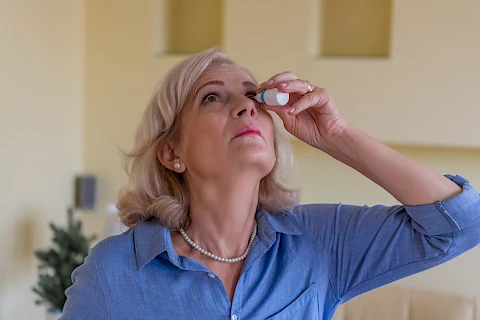
Eye care is important at every age, but it’s even more crucial as we get older. Seniors are more susceptible to various health issues, and eye infections are no exception. These infections can lead to severe complications and affect overall well-being.
Types of Eye Infections
There are several common types of eye infections that seniors should be aware of:
- Conjunctivitis, or pink eye, causes redness, irritation, and discharge.
- Keratitis is an infection of the cornea that can lead to pain, blurred vision, and eye discharge.
- Endophthalmitis is a serious infection inside the eye, often following surgery.
Symptoms of eye infections include redness, itching, swelling, discharge, and sensitivity to light. Recognizing these signs early can help prevent complications.
The Aging Immune System
As we age, our immune system naturally weakens. This decline in immune function means seniors are less capable of fighting off infections, including those in the eyes. A weakened immune system allows infections to spread more easily and linger longer, increasing the risk of severe complications.
Complications with Pre-existing Eye Conditions
Seniors are often dealing with age-related eye conditions such as cataracts, glaucoma, and macular degeneration. An eye infection can make these conditions worse. For example, cataracts can cause clouding of the lens, and an infection can lead to even further vision impairment. Glaucoma involves increased pressure in the eye, and infections can increase this pressure, leading to more significant vision loss. Macular degeneration affects central vision, and infections can accelerate this deterioration.
These complications highlight the importance of promptly addressing any signs of eye infections.
The Dangers of Delayed Treatment
Untreated or delayed treatment of eye infections can lead to serious consequences. The risks include an increased likelihood of vision loss or blindness, the spread of illness to other parts of the body, and greater difficulty in treating the infection later. Prompt medical attention can prevent these severe outcomes and ensure quicker recovery.
Preventative Measures
Preventing eye infections is key to maintaining good eye health. Practicing good hygiene by washing hands frequently and avoiding touching the eyes is crucial. Ensure contact lenses are properly cleaned and stored, and avoid sharing personal items like towels or eye makeup.
Regular eye check-ups are also vital. These appointments allow eye care professionals to spot potential issues early and manage existing conditions before they worsen.
Caregiver's Roles in Senior's Lives
Caregivers are important for keeping seniors' eyes healthy. They can help by monitoring for symptoms of eye infections and seeking medical help when necessary. Ensuring seniors follow proper hygiene practices and encouraging and facilitating regular eye examination appointments are also important tasks for caregivers. By staying vigilant, caregivers can significantly reduce the risk of serious eye health issues.
Additional Assistance for Seniors
Eye infections pose a greater risk for seniors due to the weakening of the immune system and the presence of pre-existing eye conditions. Recognizing symptoms early, seeking prompt treatment, and taking preventive measures are essential in managing these risks.
If you or a loved one in Grant, Huntington, Kosciusko, Marshall, or Whitley counties need additional support at home, including help with basic care tasks, contact Senior Helpers North Central Indiana. We are here to provide the support required to ensure the well-being of seniors.